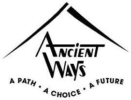Historical Context
There are many ways in which we have been working towards sustainability as a goal since we began in 2000. Our approaches to sustainability in rural Zimbabwe consider the long-term impact on each resident, the environment, and the local economy. One over-riding element has been to ask each person to be actively involved in the receipt of goods or services no matter what the economic conditions have been. Even during the most desperate hyperinflation we asked individuals to be involved, rather than bringing aid without their conscious participation. For instance:
- When rebuilding a hut, residents provide windows and doors, often from their previously collapsed building.
- When building a well, residents provide a young man or two to do the digging of the well hole.
- Preschool parents are asked to bring firewood for the meal the children receive daily.
- Residents are asked to provide gravel to build the foundation of the Community Center buildings.
- Residents are asked to repair muddy roads when washed out by bringing rock and gravel in oxcarts from nearby homes.
Our overall philosophy is one of empowerment, offering a fishing pole and not the fish. Besides offering Micro-loans, here are the main ways we have found to build sustainability into the projects:
Planting Trees
Planting trees for instance will produce fruit and fuel for several generations. This is a way we can naturally improve the future. Fuel trees also impacts the depleting wood supply through reforestation. Fruit trees produce food variety enhancing everyone’s well being.
Business Training
Many of the villagers involved in the projects need training and education in business enterprise, whether it’s for their own business, which then creates another family who can successfully contribute to the community at large, or for the Community Center and some aspect of running the projects. Training costs money, not just for the particular course of study, but also for the transportation, meals while away from home, and for a widow or widower, someone to help them at home during their absence. These issues are insurmountable for the average person and so most people remain under-educated.
Permaculture Training
The main work of every person in rural Zimbabwe is that of a farmer. What better way to support the region for the long term if not to promote permaculture? Long ago, the ancestors lived more of a permaculture lifestyle because there were few modern cities or governments. But, they also lived more of a transient lifestyle, moving from one area to another. The Shona have been farmers in this area for a long time but longevity and the land is not something that has been passed down, and there is a great need for more information.
Microloans and Hardship Aid
Microloans are probably one of the most difficult of all programs to run due to the outrageous economic unpredictability since 2000. When the US dollarization began in 2009 it gave more stability to their economy but the US dollar now does not go as far. We continue to provide microloans for both residential and business use although we are very conservative in our choices. We also provide hardship aid when appropriate and ask for your help to take the curse off of unbearable situations. Often our intervention is the thing that allows a family to heal and begin to return to normal after traumatic events.

